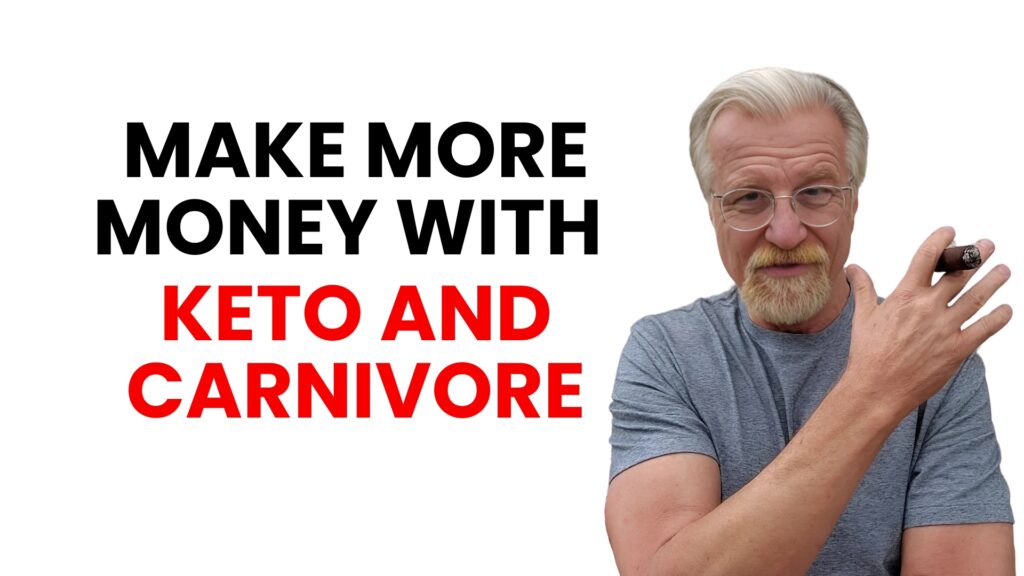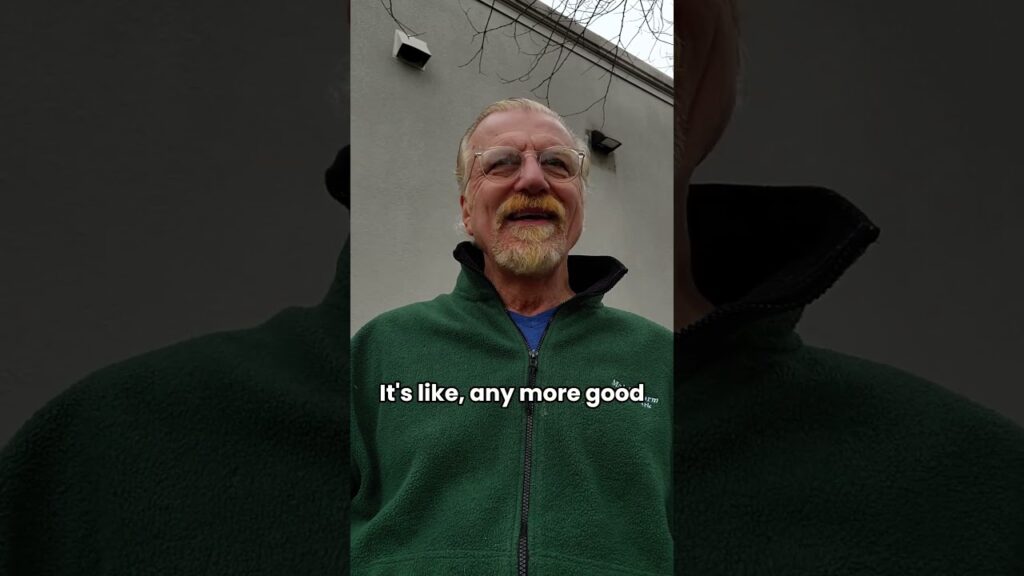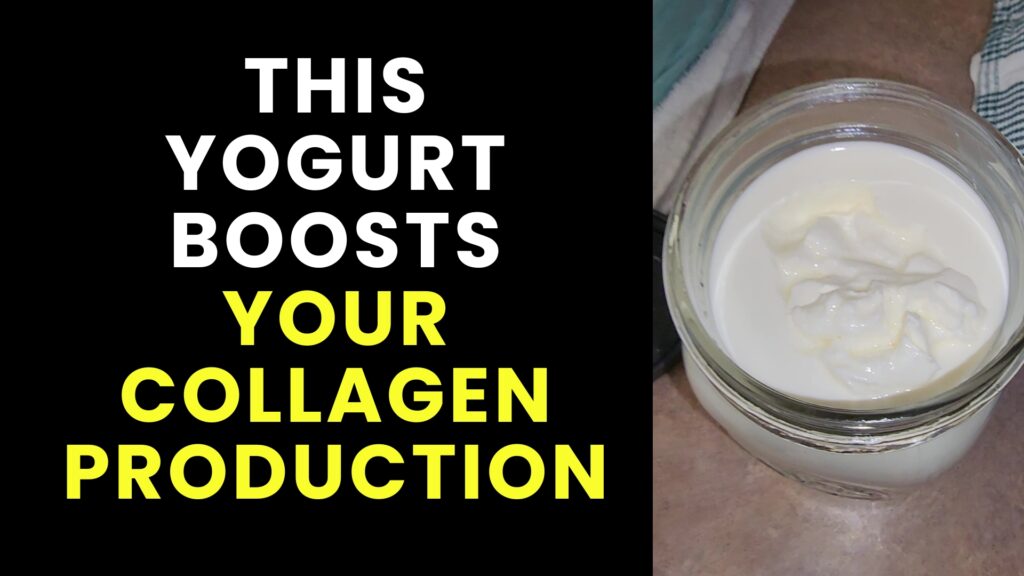Anne Rice and Her Work on Alzheimer’s Risk Reduction
Andrew Anderson: Andrew Anderson here and I’m with Anne Rice. Hit us up with what you do and how you help people.
The Link Between Oral Health and Alzheimer’s Disease
Anne Rice: I help patients with risk reduction for Alzheimer’s disease, and we go through that with oral health strategies and what dental providers can do to help their patients reduce risk.
Andrew Anderson: Okay. So for pretty much everybody that’s never heard about this, you’re telling me that your oral health can impact Alzheimer’s.
Anne Rice: Yes, right. We don’t call it causal right now. We call it a bidirectional relationship. So, there’s lots of great initiatives out there looking at microbes and how that seeds those amyloid plaques and tau tangles in the brain that’s the hallmark for Alzheimer’s disease.
Andrew Anderson: I think a lot of people have heard about that if they’re interested in it. So, can we get more details about this because I find it utterly fascinating as we talked before that your mouth can have that great of an impact on your overall health, including Alzheimer’s, which is scary to me, you know, to not be able to remember who I am or where I am or time of year, what year it is and the fact that your oral health can impact that. Why don’t you tell us about that?
Anne Rice: There’s lots of parts to reducing your risk. So, we have what’s called modifiable risk factors, non modifiable. So, we’re going to. Really work on modifiable, things that we can change. We could change for diet and exercise. So, Alzheimer’s disease really is a milieu of different things.
Our heart health and all sorts of different body issues that go into how healthy your brain is and oral health is part of that. So, some of that bacteria in your mouth can either translocate to the brain, and it seeds those plaques that we talked about, but then also a downstream effect from some of those pathogens is an inflammatory response. It inflames the body with inflammatory cytokines, but it can also inflame the brain, stimulating what’s called neuro inflammation. But what we also talk about is not just the bacteria. We also talk about how dental providers can really be at the forefront in a lot of different areas with cardiovascular risk reduction. There’s a host of things that we do in that operatory that can help lower a patient’s risk.
Understanding Inflammatory Responses and Their Impact
Andrew Anderson: Pretend I’m a fifth grader ’cause that’s where I’m at these days. What’s a cytokine?
Anne Rice: It’s an inflammatory response to pathogens. An inflammatory process with certain bacteria and pathogens that spawns an inflammatory response in the body.
Andrew Anderson: Correct me if I’m trying to understand this and paint a picture here. So, everyone’s had a pimple. So, would that be an inflammatory response?
Anne Rice: Well, what the body does with that pimple. So, there’s lots of things that go on the scene, like with periodontal disease, we get neutrophils, we get this reaction and innate immune response. Then it calls in other troopers into the scene. And then that starts this response trying to help you, of course, right? But with periodontal disease, it’s a chronic inflammation. It doesn’t stop. We have this immune response consistently going and it’s not getting better. So, it’s triggered 24/7.
Andrew Anderson: So, any type of immune response that causes inflammation is typically not good, right?
Anne Rice: Right, of course. And then we have C reactive protein, which is not a specific marker, but we see that increasing the risk of cognitive issues that could be coming from periodontal issues, lots of different responses for that.
The Importance of Balancing Oral Microbiome
Andrew Anderson: So, if we can get the bacteria and the flora and everything else in our mouth under control, it can help us. It could help us with Alzheimer’s disease, and you said cardiovascular disease. I’m talking like a heart attack or a stroke or something like that.
Anne Rice: Right, right. No inflammation is really great inflammation when it’s chronic like that. So, periodontal bacteria is unique. We have high risk pathogens. So, we all need bacteria. You need good bacteria. We can’t just slay everything. So, we have to keep it in a real delicate balance, and that’s what happens when we have oral, what we call oral dysbiosis. We have too many of the bad ones, not enough of the good ones. And so we have to write that ship a little bit. And it could be complicated, but you have to know what bacteria is in the mouth. Are they good? Are they bad? What’s our level that increases our risk.
Andrew Anderson: So, and I’ve heard this from other dentists and some doctors, few of them that, you know, when you have a mouthwash and I’m not going to name any brand names, they say killed 99.9% of the bacteria in your mouth. So, that means it’s not just killing the. Bad bacteria, but it’s also killing the good bacteria. Is that right?
Anne Rice: That’s where the, that’s where the balance comes in. It all has to be in balance. We should never kill out everything. Think about when you take an oral antibiotic for whatever is wrong in your system, we know that causes some gut issues, right? Because we’ve tramped out so many good bacteria. Same thing for the mouth. If we’re constantly using a mouthwash, medicaments, we have lots of different things that’s wiping out everything. It’s not giving a regulated system in the mouth. It’s very delicate in the mouth. And I only think now microbiologists have been wonderful in trying to lead us in dentistry to what the right moves should be for our patients.
Andrew Anderson: Okay. So, I’m going to give you an analogy. So, I grew up on a farm. We had an organic farm and one of the things was the problems with regular farming is they go in and they use a pesticide and it kills every type of bug there is. I mean, it kills everything, the butterflies, the bees, the whole nine yards.
What I’ve noticed, and I’m not, I don’t want to put words in your mouth, that whenever they do that, the pests come back faster than the good guys do, for whatever reason, it’s just, they come in and they could do that. Is that possible, what could be happening with the mouth?
Anne Rice: I guess you would really have to do a microbiologist, but what is really nuanced about everybody’s oral microbiome, just like your gut’s different than mine. My mouth is different than yours. What’s going to work for you and then how you’re going to be able to elevate it, it’s going to be different. Do you have comorbid conditions? What is your oral health like? We know that oral dysbiosis is not just brushing and flossing. That’s great. That’s wonderful strategies to do, but that makes it very simple.
So, there’s so many different things that go into it. Our diet is critical for the health of our mouth, getting the nutrients in. And so, it’s complicated, but then in certain respects, it’s pretty simple. The bad bugs don’t need to be elevated.
Andrew Anderson: Okay, cool. And just because your mouth looks healthy, it doesn’t mean it is healthy, right? It doesn’t mean the good guys are in control and the bad guys are under control. It could be the exact opposite.
Anne Rice: Correct. Correct. That is so, and it’s just like when you see the marathon runner that drops of a heart attack. You see the thin person have type two diabetes. So yeah, the picture on the outside is not necessarily, you have to test and be vigilant and be with good providers that understand all the nuanced parts to the oral microbiome.
And it changes. What I learned in school 35 years ago, I hope that my cardiologist doesn’t live on what he learned 35 years ago. We have to keep updated. And now, science is fascinating. We have QPCR testing. We’re learning so much more about the microbes in the mouth, and that’s where we’re learning that setting off a nuclear bomb in the mouth is probably not the right direction to go.
Andrew Anderson: Okay.
Exploring Salivary Diagnostics and Treatment Modalities
Andrew Anderson: And, I recently became aware, and this is what got me involved in this whole process, is that there’s a simple test. I call it The Spit Test, that you spit in a tube, basically, and they test your saliva and they can tell what bacteria that you have in your mouth and judge, okay, you have X amount of good bacteria, but you’ve got X amount of bad bacteria. And there’s yeasts and everything that’s living in there. Is that right?
Anne Rice: Correct. And we can test all sorts of different pathogens, different companies test for different things, but we could do get a snapshot and then we can do different procedures to try to help that, then we’re going to retest.
It’s just like when you go to the doctor, you’re a diabetic, your A1C is at seven. I’m going to give you metformin. I’m going to test you again because I got to know if my metformin is working on you. Same thing with the oral microbiome. It’s going to go through ebbs and flows. We have to keep current with that. Is the treatment modality that I gave you today, is that helping you? Is that working? Do we need to make a little bit of a switch? So it’s really a good metric which is perfect in medicine. They have tests and metrics for everything that they do. Dentistry is just now cresting the hill in this.
Andrew Anderson: Okay. And a modality is the treatment plan, right?
Anne Rice: Right. Whatever treatment protocol that your provider is recommending, and it’s going to be different for everyone. Do they have these bugs? Does this, is this what they need to do? What are these other conditions that are involved in it? Can we try probiotics? Can we try all different things? Depending upon that person. It’s precision dentistry that we really need to start working towards just like we’ve done precision medicine. We got to do that in dentistry.
Andrew Anderson: So, I’m sure everybody’s heard about probiotics for your gut, but now there’s probiotics for your mouth, right?
Anne Rice: Yep. There’s oral probiotics that do different things each, and it’s live bacteria, good bacteria, that’s going to try to elevate, tamp down the bad bacteria. It’s going to help with inflammatory responses. Each probiotic can do kind of different things, specific to what we need them to do.
Andrew Anderson: And if there’s bad guys in there, I’m assuming that there’s a treatment for that too?
Anne Rice: Correct. And when we talk about probiotics, what we have to clearly understand is that you can’t just pop a probiotic and cure your periodontal disease, right? It’s a little more complicated than that. We have to treat the disease, but our whole goal is the prevention of the disease. So, we need to get people earlier. We need to test earlier. It’s just like redoing anything. It’s a whole lot harder to redo something, to treat something, than it is to prevent something. So, that’s what we really try to work towards.
Andrew Anderson: Gotcha. So, in your estimation, and you’ve been at this for a while, I have never had a dentist that says, okay, before we’re going to do anything, go do the saliva test first, and then we can figure out what we’re gonna need, what we’re gonna do, how we’re gonna do it.
Some of them, when I’ve had treatments, give me an antibiotic beforehand. Some of them don’t even think about it. So, what would you see in a perfect world that a dentist or hygienist should do when they examine you? Would a saliva test be appropriate?
Anne Rice: I would say that you got to get a baseline. You have to see that. Some people decided to only do salivary diagnostics if they see something that looks curious to them. If we do it in a prevention model, just like every year, I get my cholesterol checked, I get all my things checked. I look just fine, but that doesn’t mean that I am fine. So, yeah, as a preventive measure to test, see where we are. And then, if we just have little bitty elevated levels, so much easier to treat then. When we’re sitting with people that have had dysbiosis for 20 years, it’s a whole lot harder to get them back under control. It’s going to take a lot longer.
Andrew Anderson: Dysbiosis is an unbalanced basically.
Anne Rice: Yeah, right. Exactly.
Andrew Anderson: Just want to make sure I get it. So, I’m trying to follow along here.
The Role of Dentistry in Overall Health and Disease Prevention
Andrew Anderson: And you’re at a conference that’s happening at Lincoln Memorial School of Dentistry and or Medicine. And what’s the purpose of it? Because again, not that I’m the best candidate, but I’ve probably seen 15 or 20 dentists in my lifetime. Not one single one has ever mentioned any of this to me. So, is this to educate the dentists and the doctors?
Anne Rice: I think it’s to educate everyone together and to understand that the, you know, and I’m going to say it out loud and I hate saying it out loud, is that the mouth is connected to the body. So, we’re all health care providers. That is, it’s something that people are throwing around a lot, is that we have to understand that what’s happening here is going everywhere. So, we need to get dental and medical providers to work together to understand the same thing, talk a little bit of the same language. Now, we each have our space. We clearly need to stay to a degree in our lanes, but they do intersect and we have to educate about that.
And there’s so many, I work with a preventive neurologist and we put oral health in the equation and that prevention of Alzheimer’s disease and cognitive issues. So, it’s everybody working together. And in that part of the prevention of Alzheimer’s disease, there are a million disciplines that are involved in that: cardiology, endocrinology, gerontology. I mean, you name it, it’s all involved in that because a person is a lot of different things, right?
So, this collaboration at LMU is going to be great because we’re not just going to talk about the brain. We’re going to talk about the heart, we’re going to talk about airway, all of those different things, all working together.
Also, if you’re not breathing, you’re not getting the oxygen to your brain. So, that is another intersection how. And we put all of that together, all these different things that all come together with some, I’m very excited, some of the medical people that are going to be involved in this, great to listen to and to hear their take on it, and it’s going to be nice.
Andrew Anderson: I totally agree with you. And one of the concepts that I found, it would seem like common sense, but if the doctors and the dentist and the hygienist and the whole medical profession is on the same team, and they’re aware of the impact that your mouth has on everything else that they’re doing. And I’ve spoken with
Dr Gina Pritchard, you know, her gig is cardiology, heart attacks and stroke preventions. And she puts forward that oral health is one of her first things that she checks too. I had no idea that it was all really, I mean, it makes so much sense, but it was never explained to me before that if you take better care of your mouth, you can at least reduce the risk of Alzheimer’s and heart disease and all these other things. And I had never heard of that before. So, I think it’s wonderful. And the more that we can get the word out, you know, we’re talking about changing people’s lives here.
Anne Rice: Absolutely. Yeah, and it’s about prevention and risk reduction for a lot of these diseases. And now we see such a relationship between, just like you said, with cancer, people with rheumatoid arthritis, if they have inflammation in the mouth, it can exacerbate their issues that they have with their arthritis. And it’s obviously it’s all connected.
It’s very difficult though, in both, you know, it’s time, medicine is super busy. They got a lot going on. Dentistry is in the same way. We have to just streamline some things, and that’s what I hope that this conference will be good to give really tangible, “Let’s do this on Monday morning. Let’s do it.” You can implement this. You can implement that. Let’s look at that. Because nobody has the time. We have to get this streamlined. We have to help the patients as quick as we can.
Andrew Anderson: And so, as an individual, if I go to my dentist or my doctor and say, “Listen, I want to get this oral health, you know, The Spit Test, as it were, what percentage of doctors and dentists are even aware of this whole process, do you think? And I’m not picking on them.
Anne Rice: I don’t think that physicians probably know oral salivary diagnostics, even though we now know saliva is becoming so studied as being a great marker for certain things, you know. Serum is good for other things, but that saliva is a great marker for not just oral diseases, but other things. So, I think medicine is aware of it, but probably doesn’t connect that we do have this simple salivary diagnostic.
In dentistry, I think we probably, I think most people have heard of it. Implementing it is a totally different beast, but it’s very easy to do. Your provider, that’s a key stroke for them to be going into one of the companies and setting up an account. It’s so easy. There isn’t difficulty in that. As long as somebody can spit, then we’re good.
Andrew Anderson: But it seems to me like the missing link is, okay, the dentist knows about it, but what do you do about it after you get the results? What do they mean? How do you treat it?
Anne Rice: That’s the million dollar question because that’s the question that I run into all the time. So, we get patients that have they’ve hit their salivary diagnostic. And I’m going to tell you, I spend a lot of my time trying to find great providers that can treat this disease because there will be an after check. I have the salivary diagnostic and it’s not like I’m checking your work, but we got to know what’s working, and then we’ll pivot the proverbial 2020 pivot. We’re going to make some adjustments in the protocol to try to get these pathogens down. So yeah, I struggle, finding providers that can do it.
Andrew Anderson: Gotcha. Yeah. So, if you struggle, then the average Joe or Joette’s going to struggle too probably.
Anne Rice: Yeah, I actually had done a little bit of a course and I have some hot takes on offices that you might want to redirect yourself. And just ask the question, “Do y’all do salivary diagnostics?” That’s simple. Would you be willing to, if they don’t do it, they’ve wanted to do it, I mean, don’t throw them out just because they don’t, but would you be willing to maybe do that for me? There are expectations that some of us really like to be up a little bit.
Andrew Anderson: So, and if they can’t find anybody, they can just call Anne Rice at
Anne Rice: Sure, actually just go online. I think that most of your speakers are reachable that are going to be at this event. So, it’s easy.
Andrew Anderson: Maybe not your cell phone number.
Anne Rice: Yeah, they can just reach me. I mean, it’s very simple. It’s anneorice@gmail.com, or they could go to my website and they can get to me through there.
Andrew Anderson: What else would you like to add to this? You got as much time as you want.
Anne Rice: I want people to understand we do more than just fillings and making the teeth pretty and even we do more than just treating periodontal disease. We are assimilating a lot of information. We are scrutinizing your health history. We’re putting things together. We’re watching your blood pressure. There’s so many different things that we do. Checking airway is huge. We are able to treat sleep apnea in these practices. You got to be able to breathe. You don’t breathe, you have cardiovascular risk, you have brain health issues. So many different things.
So, dentistry is a lot of different things. And I don’t want us to be pigeonholed into we’re just going to make a bunch of veneers and you’ll smile like Hollywood, or that the only thing that we’re doing is treating periodontal disease. There’s a lot of other things involved in that.
Andrew Anderson: Okay.
The Significance of Airway Health and Breathing
Andrew Anderson: The whole airway thing. So, that’s basically breathing. And can you tell us how, let’s say we have a hardcore snore, and I’ve got a lot of them in my family, how does that impact the biome in your mouth?
Anne Rice: Your mouth is going to be open. So, it’s going to be dry, and all you did is just make your mouth more of a Petri dish that you’re just going to grow all the bad guys. I mean, mouth breathing is one of the worst things you could do for a lot of different reasons. You’re meant to breathe here. It filters bacteria. You get more oxygen absorbed if it’s coming through here and not through here. Snoring is never really benign. Do you have full sleep apnea? Maybe, maybe not, but it’s not benign and there’s something happening.
You also don’t want to have an oxygen desaturation. You don’t want to drop your oxygen level. Your brain, and that’s the part that I focus in, right? So, your brain runs on oxygen and blood flow. I mean, think about a stroke. You’ve lacked oxygen and you lose parts of your brain. There are certain parts of your brain that are very susceptible to damage due to a drop in oxygen. Do that all night long. Can you imagine?
We also know that with sleep apnea, the relationship with cardiovascular disease, with brain health disease. You have a high blood pressure patient that has sleep apnea, they are going to struggle with that medication that the medication is even going to be as efficacious as it could be if they didn’t have sleep apnea.
So, breathing in air, and that is so simple in a dental practice to be able to assess airway issues. They can throw you out a home sleep test really easy. Just do some cursory things, ask some questions and get a start to looking at your breathing and airway.
Andrew Anderson: Right. And then I know, I’m from the Midwest and we always, it was a derogatory term, but you know, like if someone was kind of slow, “Oh, he’s a mouth breather.”
Anne Rice: Oh, that’s funny. I don’t, I have not, I’m Midwest too, and I hadn’t heard that, but I would say that, yeah, and you look at little kids, if you look at the sleep apnea to how they’re doing in school educationally, they’re doing less, they’re not sleeping. I mean, they’re not there. So many things are happening. Their immune system isn’t as triggered as well. They’re not able to get into your learning and the memory as it should. We all need to be breathing better, breathing a little bit less slower, through the nose, always through the nose. Keep those lips together.
Andrew Anderson: I’ll remember that. I have some tape. So…
Anne Rice: Yeah, we all do. We’re all doing the tape. That’s for sure.
Andrew Anderson: Yeah. So cool. Well, it was so nice talking to you. I love talking to smart people that are on the ball and on the cutting edge.
Anne Rice: I don’t know about that.
Andrew Anderson: You are. Trust me. I’ve spoken to dozens and dozens of people out there. And so, we’ll put the links for everything. I’m looking forward to your presentation and your presentation is on the connection…
Anne Rice: Brain health and oral health. I don’t even I’m not, sure. That’s okay. I’m not sure the title. I think it’s just brain health, totality of care brain health. So we get into a lot of different things, bacteria, but we get into other things too.
Andrew Anderson: So, the medical professions can go to this. It’s in..
Anne Rice: Knoxville,
Andrew Anderson: Tennessee, and, or now we have a virtual setup so that if they can’t fly there, they can buy the tickets online, and they’re CME credits and everything. So, I definitely encourage anybody that’s interested in this to do that. Again, all the links will be in the description. And without Anne’s phone number and we’ll be good. Thank you so much for talking to me today. That was fun. Well, I’d love to have you back and go more in depth about this at another time. Sure.
Because it’s so fascinating. And for me, it’s brand new. I’m like, holy smokes. Why didn’t somebody tell me this stuff before? And you’re in the same position I am, so…
Anne Rice: Yeah, that’s great. I’d love to come back.
Andrew Anderson: Okay. Thank you so much. Have a great day.
Anne Rice: Thanks. See ya. Bye.
Click On This Link For The Skip Your Next Heart Attack Content






